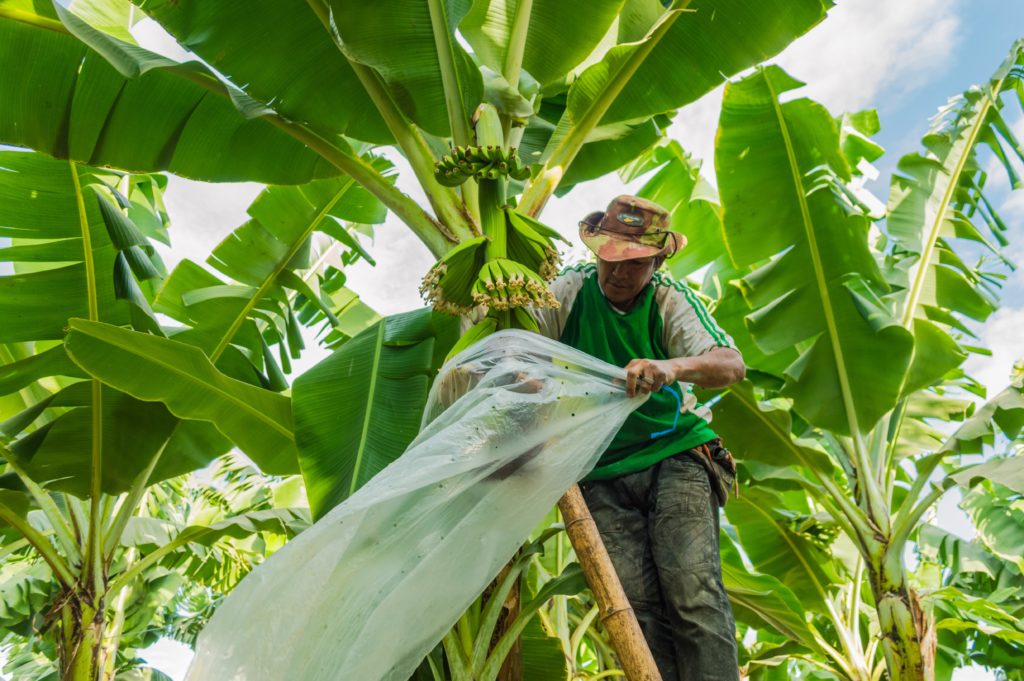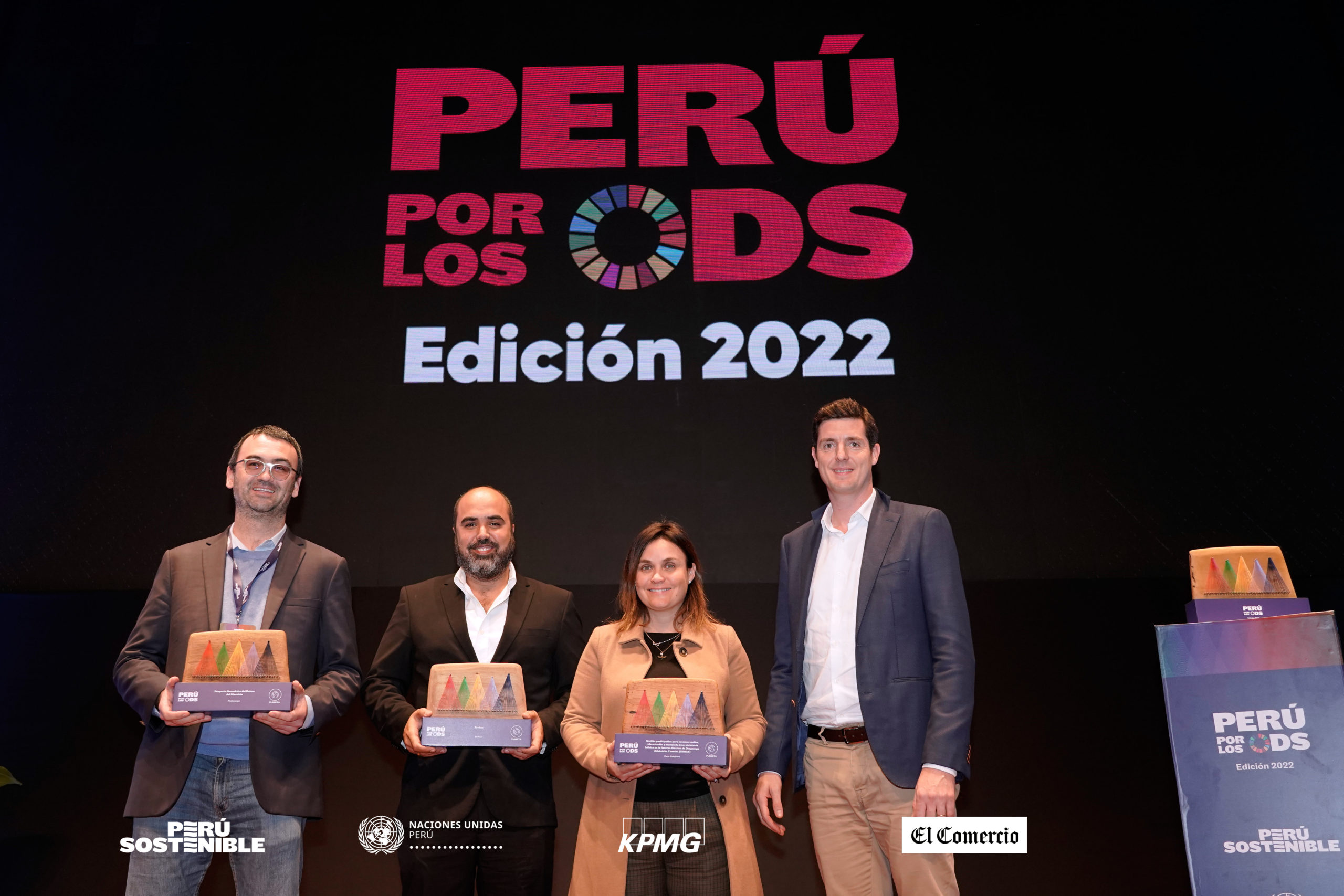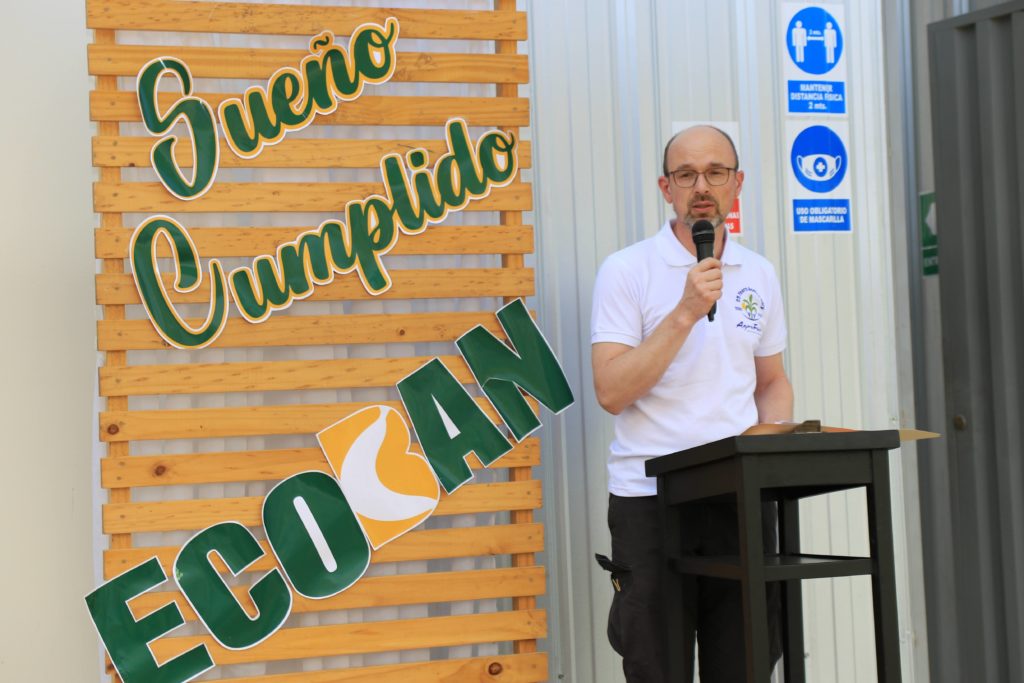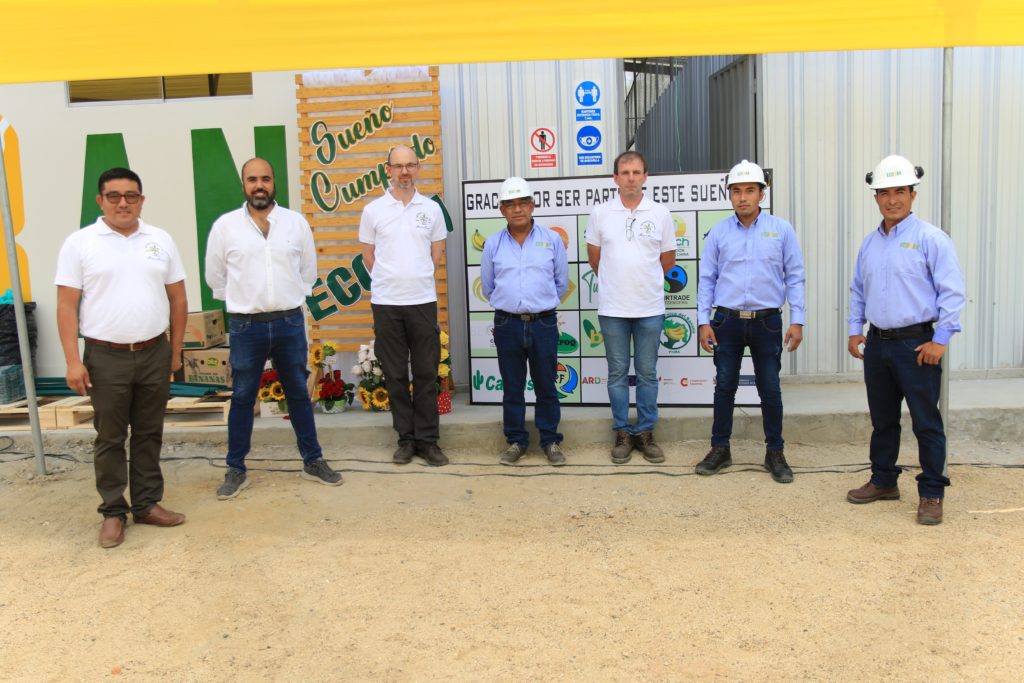Peru for the Sustainable Development Goals is an initiative, sponsored by the United Nations in Peru, to promote the 2030 agenda for development. It recognizes organizations from different sectors contributing to the fulfillment of one or more SDGs in five categories: People, Planet, Prosperity, Peace, and Partnerships. In its 2022 edition, Ecoban, a start-up created by Solidaridad, Agrofair, and the Banana Cluster, was awarded in the category “Planet” for its contribution to the conservation and sustainable management of natural resources, taking urgent action to address climate change (SDG 6,12, 13,14 and 15).
During the award ceremony, the jury praised the project for its direct impact on both the environment and the families and communities connected with the banana plantations.
“The project has a direct impact on the environment and the beneficiary families, as it provides a comprehensive solution to the problem of plastic waste by manufacturing corner boards (used to protect the bananas when they are exported) with recycled material. This work is coordinated by small producers. The initiative stands out because it strengthens the circular economy in the organic bananas value chain.”
jury of Peru for the sustainable development goals
Why is plastic an issue in the banana industry?

The banana sector uses different types of plastic. The two main ones are banana covers, low-density polyethylene bags that cover the bunch (fruit), and corner boards for pallets used in export logistics. Both account for 87% of the plastic used in the value chain.
As Peru exports around 220,000 tons of bananas per year, more than 900,000 plastic corners and 20 million plastic bags are used annually, generating 410 tons of plastic waste per year. There is no adequate solid waste management in place, and the vast majority of plastic waste is buried, burned, thrown into the rivers, or carried by the wind. This is a latent and extremely visible environmental hazard.
The ECOBAN solution
The manufacturing of corner boards from waste material has many benefits: it can be made against a competitive price, saves waste, and saves costs for the banana associations.
ECOBAN now has the capacity to collect and transform 25% of the plastic bags used in plantations and supply more than 270K plastic corner pieces per year. This amounts to more than 30% of the current plastic corners demand in the Peruvian banana industry.
The Banana Cluster
This milestone was achieved thanks to the work of the Banana Cluster, a multi-stakeholder sector initiative that involves producer associations, traders, exporters, certifiers, service providers, workers’ unions, and public and academic institutions from Peru. Solidaridad forms the backbone of the Banana Cluster and facilitates the organization.
Many partners have provided funding of approximately USD 150,000 to set up the infrastructure and production lines. ECOBAN has also received support from the Netherlands Enterprise Agency (RVO), Cactus supermarkets and the Peruvian Pro Innóvate programme.
The mission of the Banana Cluster is to identify gaps in the sector and propose environmentally and socially responsible solutions that boost the competitiveness of the sector and make the export of bananas sustainable. It is an initiative where private companies and producer associations can learn from each other.
Besides the management of plastic waste, the banana cluster also plans to contribute to decarbonization goals by developing a carbon neutral offer for the European market, and a system for the monitoring and prevention of Fusarium Race 4 (a lethal tropical fungus and main danger of this crop worldwide).
For more information on ECOBAN and the Banana Cluster, please contact Diego Balarezo, fruits programme manager for Solidaridad in Peru.



